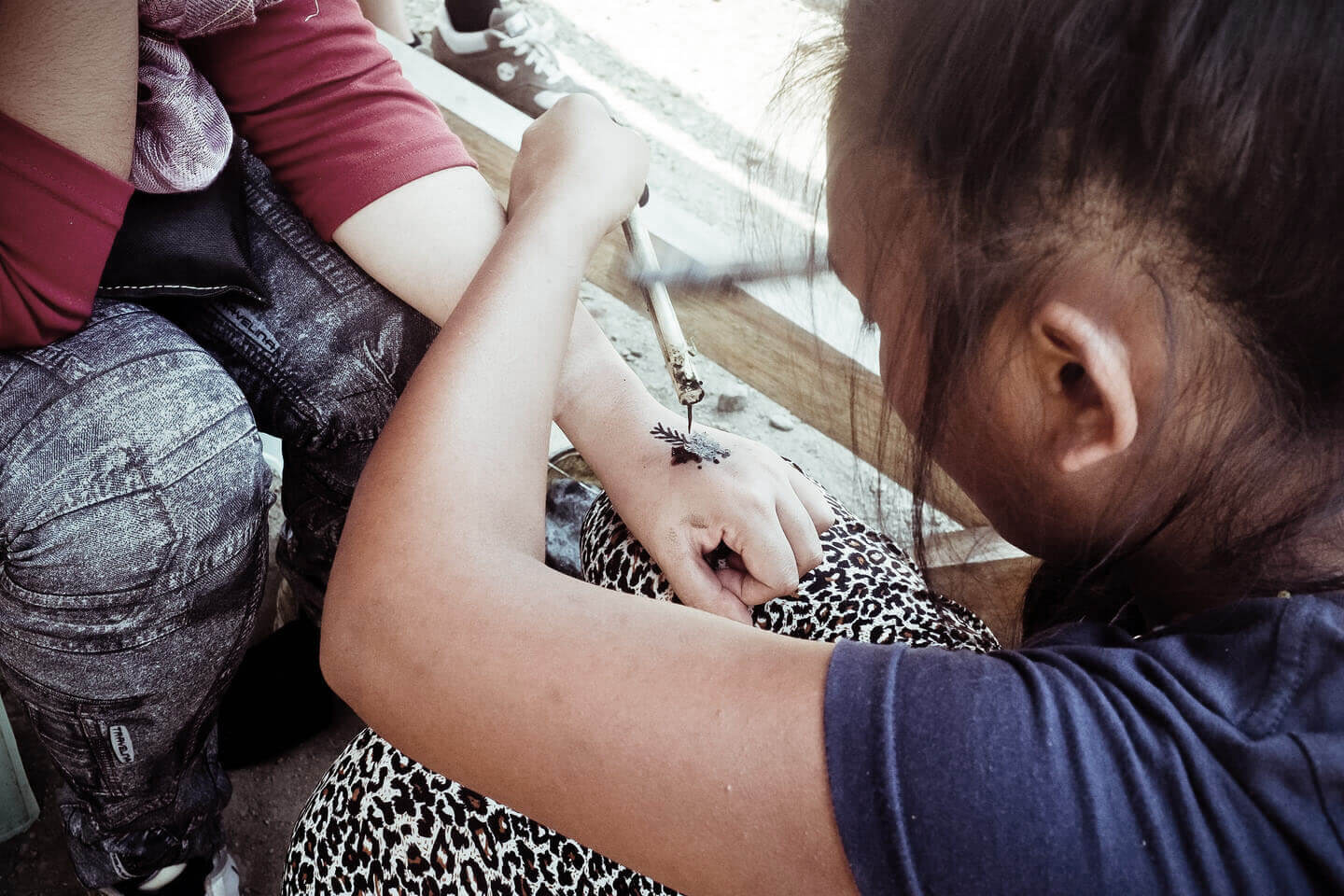Whang-od started her tattoo works at the age of 15 that she learned from her father. She has been doing the batok, the traditional hand-tapped tattooing, to male headhunters who earned the tattoos by protecting villages or killing enemies. She also applies tattoos to women of the Butbut people in Buscalan, Kalinga primarily for aesthetic purposes. As a traditional Kalinga tattooist or mambabatok, she did fortune telling and chants while doing tattoos. Every design she created has symbolic meanings connected to it. For example, an eagle tattoo indicates that the warrior successfully killed an enemy upon his return from a battle.

Whang-od Oggay (First name pronunciation: [ˈɸɑŋ:ˈəd]; born February 17, 1917), also known as Maria Oggay, is a Filipina tattoo artist from Buscalan, Tinglayan, Kalinga, Philippines. She is often described as the “last” and oldest mambabatok (traditional Kalinga tattooist) and is part of the Butbut people of the larger Kalinga ethnic group. She has been tattooing headhunters and women of the indigenous people of Butbut in Buscalan, Kalinga since she was 15 years old but the Butbut warriors who used to earn tattoos through protecting villages or killing enemies no longer exist. Despite that, Whang-od continues to apply her traditional art form to tourists visiting Buscalan.

She herself was tattooed when she was a teenager and her first tattoo consists of a ladder and a python. Fatok is the term used for tattooing women to show beauty and wealth. When an arm of woman is tattooed just like Whang-od’s own tattoos, the family of the woman is obliged to pay the tattoo artist a piglet or bundle of harvested rice (locally called as dalan). On the other hand, fi-ing is the term used for tattooing of male Butbut warriors on their chests and arms. Whang-od used to practice fi-ing until headhunting was discouraged by the government. Fi-ing was last practiced in 1972.
She has been tattooing headhunters and women of the indigenous people of Butbut in Buscalan, Kalinga since she was 15 years old but the Butbut warriors who used to earn tattoos through protecting villages or killing enemies no longer exist. Despite that, Whang-od continues to apply her traditional art form to tourists visiting Buscalan.

